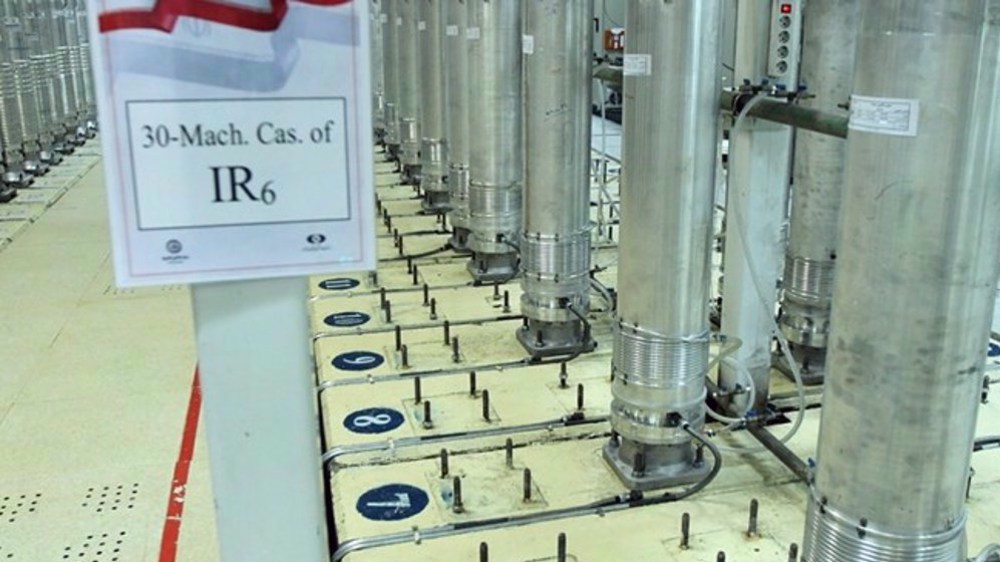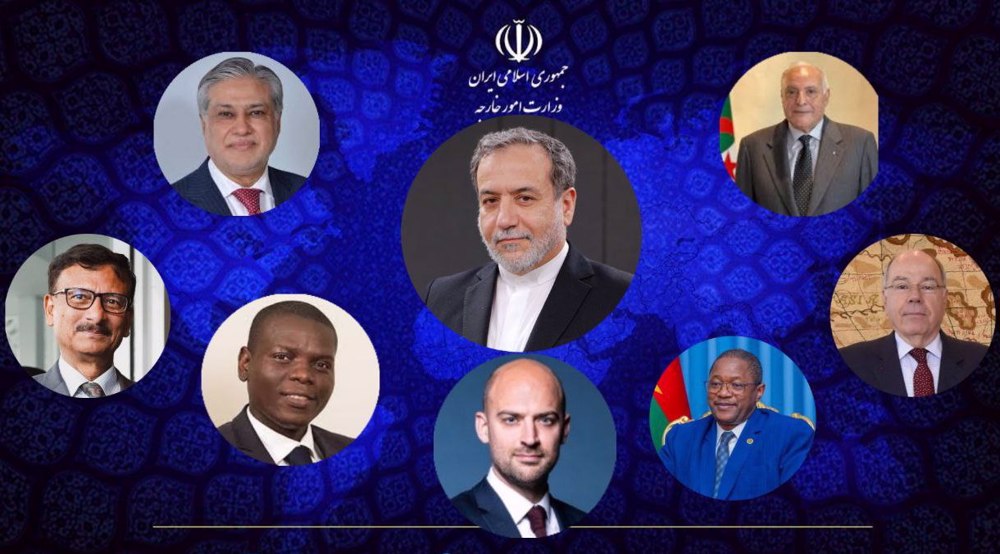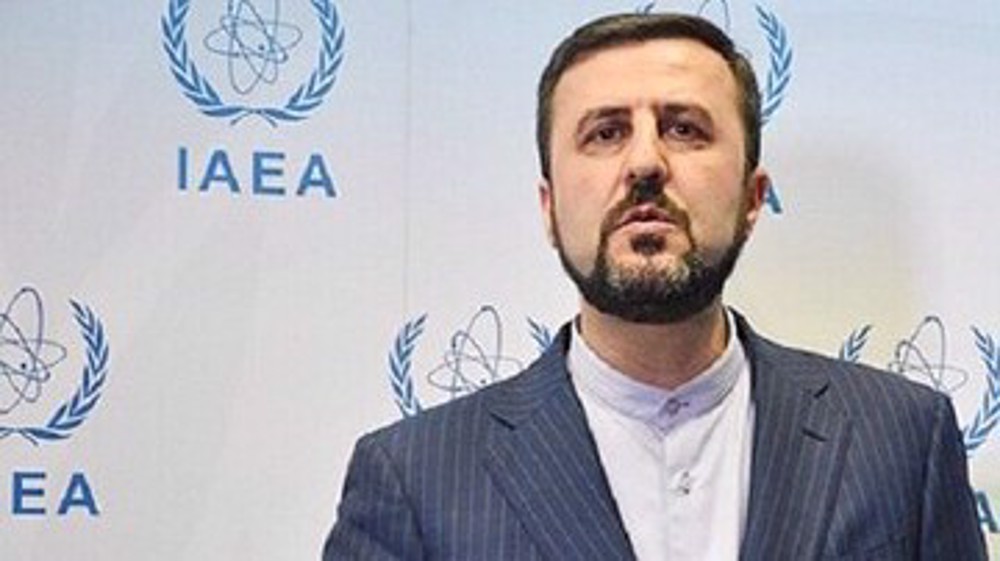Iran suspends some commitments under 2015 nuclear deal: Official
Iran has suspended some of its commitments under a nuclear agreement it signed with six world powers in 2015, upon an order from the country’s Supreme National Security Council (SNSC), an informed official in the Atomic Energy Organization of Iran (AEOI) says.
The official, who spoke on condition of anonymity, said on Wednesday that plans about the suspension of some of the country’s commitments under the Joint Comprehensive Plan of Action (JCPOA), which had been underlined in the SNSC statement last week, have been implemented.
Iran will seriously pursue plans about the suspension of caps on production of enriched uranium and unlimited production of heavy water at the Arak facility, as stressed during the first 60-day period related to Iran’s first step in response to the US withdrawal from the nuclear deal, the AEOI official added.
In May 2018, US President Donald Trump withdrew Washington from the JCPOA, reached in July 2015 between Iran and the P5+1 group of countries -- the United States, Britain, France, Russia and China plus Germany -- and decided to re-impose unilateral sanctions against Tehran.
Under the JCPOA, Iran undertook to put limits on its nuclear program in exchange for the removal of nuclear-related sanctions.
On the first anniversary of the US withdrawal from the nuclear deal, Iran announced that it would suspend the implementation of some of its commitments under the deal, announcing that it would stop exporting excess uranium and heavy water, setting a 60-day deadline for the five remaining parties to the deal to take practical measures towards ensuring its interests in the face of the American sanctions.
A senior official of the AEOI said this week that the country has no intention to stop fulfilling its commitments under the JCPOA, but decided to suspend parts of them for six months to give time to Europeans to comply with their obligations and to bring the international agreement back on its right track.
Behrouz Kamalvandi, the spokesman of the AEOI, said in an exclusive interview with Press TV that the main objective of the JCPOA was the removal of sanctions against Iran in a bid to help the country avail itself of the benefits of the deal; however, the restrictive measures are still in place despite Tehran’s full compliance and the goal has not been realized so far.
Following Washington’s exit from the deal, the Europeans pledged to keep the historic agreement alive but Iran has criticized them for failing to fulfill their obligations under the deal, urging them to speed up implementing a non-dollar direct payment channel with Tehran aimed at circumventing the US sanctions.
Late in January, the three European parties to the 2015 deal issued a joint statement, announcing the launch of the Instrument in Support of Trade Exchanges (INSTEX) meant to safeguard their trade ties with Tehran in the face of the US sanctions.
"Iran waited for a year to see what Europeans are going to do, they have given promises … they have taken good positions, but their promises about SPV and INSTEX have not been fulfilled," Kamalvandi said.
The AEOI spokesman further said Britain, Germany and France have only been offering nice words and promises with regard to the JCPOA and emphasized that Iran just wants the removal of sanctions in order to be benefited by the deal.
"Europeans must do something to change the [present] course of events," he added.
Iranians protest against Israel after Netanyahu ICC warrant
Germany undecided on complying with ICC arrest warrants for Israeli war criminals
VIDEO | Former FBI agent criticizes US Congress for 'outright corruption'
IRGC chief urges Muslim countries to cut aid routes to Israel
'New chapter in cooperation': Iran, Venezuela sign new MoUs
Jordan sentences former lawmaker for supporting Palestinian resistance
Basij volunteer forces hold massive drills in southwestern Iran
Israeli war criminals 'not welcome', US city says after ICC ruling












 This makes it easy to access the Press TV website
This makes it easy to access the Press TV website